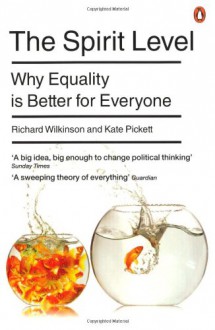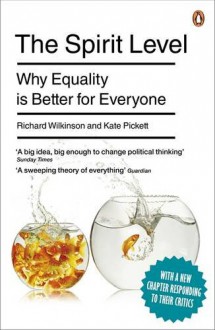
I’d picked up The Spirit Level at some point last year, but hadn’t actually got around it reading it. When I heard one of the authors was hosting a local event, as part of a festival of ideas and politics I decided now was the time to read it.
The Spirit Level attempts to relate income inequality to a whole host of other societal problems, such as violence and mental health. This was done by comparing the two with data sources from the World Bank, the World Health organisation, the United Nations etc. I would have preferred there to be a little more science, but what there was was convincing.
The authors find, not surprisingly, that where there are great disparities in wealth, there are heightened levels of social distrust.
Each chapter highlighted a different societal problem and compared it to income inequality. Where there were higher rates of inequality, the social problems increased consistently.
The contrast between the material success and social failure of many rich countries is an important signpost. It suggests that, if we are to gain further improvements in the real quality of life, we need to shift attention from material standards and economic growth to ways of improving the psychological and social wellbeing of whole societies
The talk by the author was interesting, if not mostly what I’d just read! He has a new book out, The Inner Level. I’ve yet to look into it, but I think I will now…

 Log in with Facebook
Log in with Facebook 








